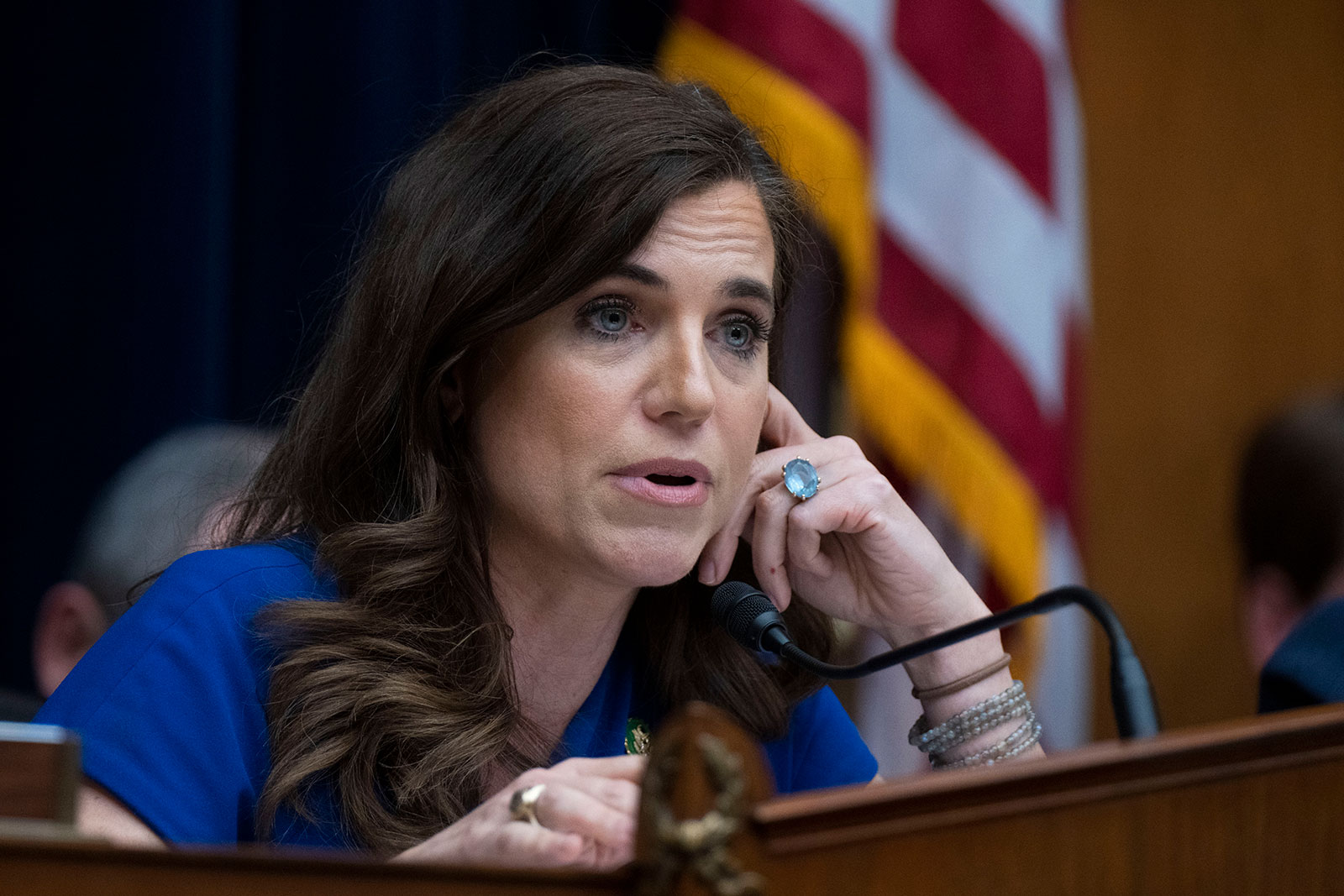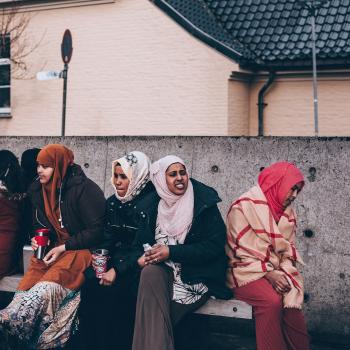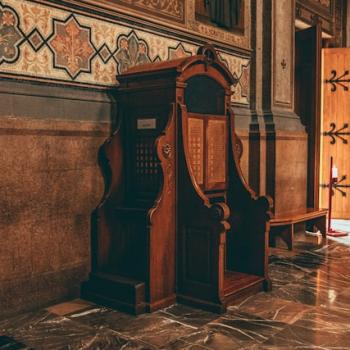This week, another cultural hot-button issue went viral in American politics. Should trans women be able to use cis women’s bathrooms? This question entered the national spotlight when one representative, Nancy Mace, brought the issue to the House.

McBride was recently elected as Delaware’s representative (Delaware only gets one). This makes her the first openly transgender person to be elected to the US Congress. Rachel Levine, assistant secretary for health in the Department of Health and Human Services, made similar headlines as the first openly trans US federal official when she was confirmed by the Senate in 2021.

Two weeks after McBride won the Delaware election, Nancy Mace, a South Carolina representative, pushed for legislation to ban trans women from using the women’s bathroom on federal property. It is here that our commentary begins.
The Broader Context
This bathroom controversy resembles many other debates in American life. Should trans women compete in women’s sports? Can transgender individuals serve in the military? Which quarters should trans inmates be incarcerated in? Can religious institutions utilize their religious freedom to discriminate against potential employees based on gender identity?
These issues all pertain to gender identity in public life. And these questions are by no means inconsequential. The (re)incoming Trump campaign prioritizes keeping men out of women’s sports as #17 on its Project 47 platform. The Obama administration announced in 2016 that trans Americans could openly serve in the military. In Trump’s last term, he enacted policy in 2019 that essentially banned incoming trans enlistees, with some exceptions. Biden reversed this policy when he entered office.
When we think about the first two debates about bathrooms and sports, we find that these issues turn on whether trans women are welcome in cis women’s spaces. For definition purposes, trans people are those whose gender identity does not correlate with that of their born sex, while cis people are those whose gender identity does correlate.
Gender and Violence
When we think about the bathroom issue specifically, we find that this is a matter of violence. Or rather, fear of violence. There is a presumption here that trans women are inherently violent. More to the point, that trans women identify as women for no other reason than to prey upon and violate cis women and girls.
While this is not always explicitly said, it is implied by high-profile politicians like Nancy Mace. In a video, the South Carolina representative filmed herself going out for a walk, saying,
I’m going to fight like hell for women and girls to keep men out of women’s private spaces, to include bathrooms, restrooms, locker rooms, changing rooms, you name it. You are not welcome.
By why the lack of hospitality if not for the threat of violence that trans women present for Mace? In another video, Mace tells an ABC interviewer:
I’m not going to allow biological men into women’s private spaces. I will stand . . . in the way of anyone on the radical Left who thinks that it’s okay for a penis to be in a women’s locker room, or a bathroom, or a changing room. Hell, no.
Later, Mace opens up about her deeper reasoning.
I’m a survivor of rape. I’m a survivor of sexual abuse. And I’m not going to allow any man in any female private spaces, end of story.
Not a Matter of Religion, But of Trauma
I grew up around a lot of animosity and distrust towards trans individuals in Christian churches. But while Christians debate Scripture over whether being trans (or transitioning) is morally wrong, it does not seem that this bathroom controversy is about religious beliefs. At least not in how Mace frames it.
We do get some religious reasoning from House Speaker Mike Johnson. But his rhetoric does not quite harbor the fear of violence that Mace communicates. In front of the press, Johnson said,
A man is a man, and a woman is a woman. And a man cannot become a woman. That said, I also believe- that’s what Scripture teaches, what I just said. But I also believe that we treat everybody with dignity. And so, we can do and believe all those things at the same time.
Later, when asked whether Mace’s legislation would be included in the House rules package, Johnson dodged the question. But he did conclude by saying, “We don’t look down upon anyone.”

It is striking to me that the politician speaking in more explicitly Christian terms is more cordial about the controversy. In contrast, Mace operates more from a place of distrust and animosity. Mace is a nondenominational Christian. But her faith does not figure large in her remarks that we’ve seen. Rather, her traumatic experiences and the distrust that such trauma brings does.
Grounds for Distrust?
What Mace survived is hellish and should have never happened. And many other cisgender women seem to share her concerns about sharing private spaces with trans women. I believe that these concerns come from somewhere, and that these concerns should not be dismissed out of hand.
There have been some occurrences of violence in bathrooms. In one Oklahoma high school, for example, a student was “attacked and severely beaten” by another student who was trans. This 2022 incident led to a lawsuit. This is the only incident of violence committed by a trans person in a bathroom that I have been able to find.
Violence committed by trans women against cis women seems to be exceedingly rare. What is much more common is the opposite. In 2020, a trans woman was shot to death for using a women’s bathroom in Puerto Rico. In February, a 16-year-old nonbinary student was beaten in a school restroom for their gender identity and died a day later. An article on Vox documenting several similar instances concludes that
The only bathroom harassment historically related to trans people, in fact, seems to be harassment and discrimination against trans people.
While many women may have suffered at the hands of brutal men who must face justice, is it fair to impute these same ill motives onto all trans women?
Christianity and Trans Identity
As an evangelical writer who cares deeply about forging a common life amongst strangers, this controversy over bathrooms on federal properties demonstrates how messy and difficult this shared life can be.
Though I am no fan of Speaker Mike Johnson (for reasons pertaining to his neglect of RECA, which withholds compensation from downwinders in New Mexico and elsewhere), I applaud his words about recognizing the dignity of all, regardless of gender identity. Of course, deeds matter more than lip service. But in a world where many Christians are being socialized to completely dehumanize trans people, this attitude is deeply important.
Christians must pay careful attention to the sheer extent to which trans individuals are the victims of violence in America. The rates are disproportionately high, especially among trans people of color. Resisting dehumanization calls for understanding the suffering that one’s neighbors go through and putting this pain in proper perspective rather than dismissing, downplaying, or ignoring it.
As a theological conservative myself, I am still working out the details of what the Bible says about transgender identity. I do not believe it is as clear cut as many think. In fact, a colleague recently suggested that trans identity may be something that the Bible is silent on. But that is for another article at another time.
The call here and now is to love our neighbors. And I have written before on the importance of recognizing who our neighbors are. Our call to love our neighbors demands that we recognize the fear of violence that many women have about sharing private spaces with trans women, and the traumas that this fear can come from. But neighbor love also requires understanding and acting to prevent the violence that trans people already suffer at rates much higher than nearly any other demographic.













